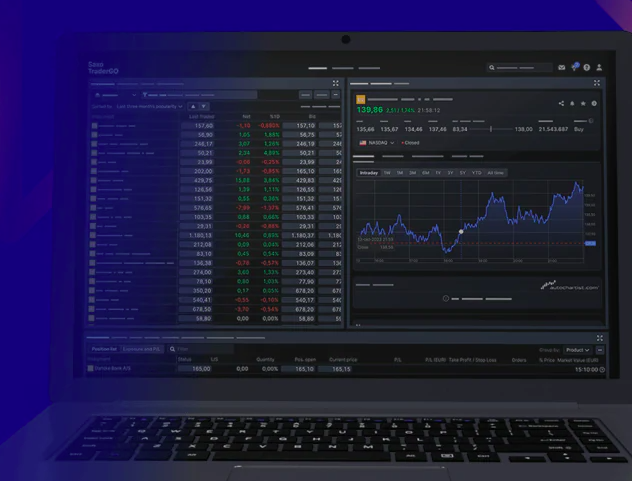Maruti Suzuki, the major car manufacturer in India, has reached a milestone of 25 million units in total sales. This has led many investors to ask, “Is Maruti Suzuki a good auto stock to buy?” As the company continues to grow, it is important to consider the Maruti Suzuki share price target for the next few years.
In this article, we will be exploring the Maruti Suzuki share price target for the years 2023 to 2030, providing insights into the current market trends and future prospects of the company.
Whether you are an investor or just curious about the future of Maruti Suzuki, this article will provide valuable information to help you make informed decisions.
About the Company
Maruti Suzuki is an automobile manufacturer in India. It is a part of Suzuki Motor Corporation of Japan. Maruti Suzuki manufactures a wide range of vehicles, including hatchbacks, sedans, vans, and SUVs. The company’s cars are known for their fuel efficiency, affordability, and safety features.
Maruti Suzuki is India’s largest car manufacturer, with a market share of over 53%. The company was founded in 1981 and has its main office in Delhi. Maruti Suzuki has a wide range of vehicles, with the Swift, Alto, and WagonR models being among their most popular. The company has also recently launched its first electric vehicle, the Maruti Suzuki WagonR EV.
Stock history of Maruti Suzuki
Maruti Suzuki has been on the upswing since its establishment in 1981. Over the years, the company has seen its stock price increase, as it has become the top car manufacturer in India and a major player in the global automotive market.
In 2005, the stock of Maruti Suzuki began rising steadily, reaching an all-time high of Rs. 3,214.90 in September 2007. Following the global financial crisis in 2008, the stock dropped to Rs. 1,687.5 in March 2009. From there, the stock gradually rose back to its pre-crisis levels, touching Rs. 3,072.15 in April 2018.
Maruti Suzuki has seen its stock price grow further since then, with the stock hitting a new high of Rs. 8,855 in 2023. The company has benefited from increasing demand for cars in India as well as the launch of various new models. Furthermore, its strategic alliances with Toyota and Suzuki Motors have also helped the company maintain its growth trajectory.
Latest news about Maruti Suzuki
- Public companies hold the majority stake in Maruti Suzuki India Limited (NSE: MARUTI) with a ownership share of 56%, whereas institutions possess 28% of the company’s shares.
- Maruti Suzuki has unveiled an additional feature for its flagship subscription plan called the White Plate Subscription. This new inclusion involves a buy-back option and complements the existing plan, which already offers various end-of-tenure choices.
- Maruti Suzuki is set to conclude its manufacturing agreement with Suzuki Motor Gujarat.
- Naveen Kulkarni, the Chief Investment Officer (CIO) at Axis Securities, observes that Maruti Suzuki’s Q1 margins fell slightly short of anticipated levels.
How to buy Maruti Suzuki shares?
To purchase Maruti Suzuki shares, you will need to open a Demat account with a stockbroker and deposit the amount of money you wish to invest. Then, use the broker’s trading platform to search for the Maruti Suzuki stock, select the quantity and price, and place the buy order. Once the order is executed, your shares will be credited to your Demat account.
You can also buy shares from the following trading platforms:
➤ Zerodha
➤ Upstox
➤ Groww
➤ AngelOne
➤ ICICIDirect
Share Price Prediction of Maruti Suzuki: 2023 to 2030
Share Price Target 2023 of Maruti Suzuki is ₹9,704.18
| When | Maximum Price | Minimum Price |
| August 2023 | ₹9,300.00 | ₹8,454.55 |
| September 2023 | ₹9,513.90 | ₹8,649.00 |
| October 2023 | ₹9,236.80 | ₹8,397.09 |
| November 2023 | ₹9,421.53 | ₹8,565.03 |
| December 2023 | ₹9,704.18 | ₹8,821.98 |
The table also shows a bullish trend for Maruti Suzuki’s share price in 2023 with a growth percentage ranging from 4.76% to 35.23%. The maximum price is predicted to be ₹9,704.18 in December 2023 while the minimum price is ₹9,300.00 in August 2023. However, the majority of the months show an uptrend with prices higher than ₹8,855.00.
The consistent growth in the share price throughout the year indicates a positive outlook for the company and a potential for high returns for investors. Overall, the data suggests a strong year for Maruti Suzuki in 2023 with a clear upward trend in the share price.
Share Price Target 2024 of Maruti Suzuki is ₹16,965.59
| When | Maximum Price | Minimum Price |
| January 2024 | ₹11,755.68 | ₹9,812.06 |
| February 2024 | ₹14,332.23 | ₹11,943.52 |
| March 2024 | ₹15,086.56 | ₹12,265.49 |
| April 2024 | ₹13,715.05 | ₹10,550.04 |
| May 2024 | ₹11,429.21 | ₹8,791.70 |
| June 2024 | ₹13,715.05 | ₹10,550.04 |
| July 2024 | ₹11,657.79 | ₹9,037.05 |
| August 2024 | ₹12,823.57 | ₹10,177.44 |
| September 2024 | ₹13,464.75 | ₹10,357.50 |
| October 2024 | ₹15,840.88 | ₹12,185.30 |
| November 2024 | ₹16,632.93 | ₹12,794.56 |
| December 2024 | ₹16,965.59 | ₹13,050.45 |
The table shows a mixed trend for Maruti Suzuki’s share price in 2024 with a growth percentage ranging from -13.52% to 22.34%. The maximum price is predicted to be ₹16,965.59 in December 2024 while the minimum price is ₹11,429.21 in May 2024.
Despite the fluctuation, the overall trend suggests an upward trajectory with a majority of the months showing prices higher than ₹11,755.68.
This indicates a promising future for the company and potential for high returns for investors. In conclusion, the data suggests that 2024 may see some ups and downs for Maruti Suzuki’s share price, but the overall trend is positive with a maximum target of ₹16,965.59.
Share Price Target 2025 of Maruti Suzuki is ₹20,579.52
| When | Maximum Price | Minimum Price |
| January 2025 | ₹17,304.90 | ₹13,311.46 |
| February 2025 | ₹18,215.68 | ₹14,012.06 |
| March 2025 | ₹19,126.47 | ₹14,712.67 |
| April 2025 | ₹17,077.20 | ₹13,136.31 |
| May 2025 | ₹15,524.73 | ₹11,942.10 |
| June 2025 | ₹17,077.20 | ₹13,136.31 |
| July 2025 | ₹16,264.00 | ₹12,510.77 |
| August 2025 | ₹16,941.67 | ₹13,032.05 |
| September 2025 | ₹17,788.75 | ₹13,683.66 |
| October 2025 | ₹18,856.08 | ₹14,504.67 |
| November 2025 | ₹20,176.00 | ₹15,520.00 |
| December 2025 | ₹20,579.52 | ₹15,830.40 |
Maruti Suzuki’s share price target in 2025 shows a consistent growth trend with the growth percentage ranging from 4.07% to 14.08%. The maximum price target is predicted to be ₹20,579.52 in December 2025, while the minimum price target is ₹15,524.73 in May 2025.
The majority of the months are predicted to have prices higher than ₹17,304.90, indicating a bullish outlook for the company in 2025. The steady increase in prices suggests that Maruti Suzuki will continue to perform well and provide good returns for investors.
In conclusion, the data suggests that Maruti Suzuki’s share price target in 2025 is positive with a maximum target of ₹20,579.52, making it a good auto stock to buy.
Maruti Suzuki Share Price Prediction 2026-2030
| Year | Maximum Price | Minimum Price |
| 2026 | ₹14,405.67 | ₹10,083.97 |
| 2027 | ₹12,244.82 | ₹8,571.37 |
| 2028 | ₹22,040.67 | ₹15,428.47 |
| 2029 | ₹45,274.95 | ₹31,692.47 |
| 2030 | ₹50,419.83 | ₹35,293.88 |
Maruti Suzuki’s share price target from 2026 to 2030 has been projected to show fluctuation in the market. In 2026, the maximum price is expected to reach ₹14,405.67 with a minimum of ₹10,083.97. The following year, 2027, the share price target is expected to decrease with a maximum of ₹12,244.82 and a minimum of ₹8,571.37.
However, in 2028, Maruti Suzuki’s share price target is expected to show a sharp growth with a maximum of ₹22,040.67 and a minimum of ₹15,428.47. By 2029, the company’s share price target is expected to soar to ₹45,274.95 with a minimum of ₹31,692.47 and further increase in 2030 with a maximum of ₹50,419.83 and a minimum of ₹35, 293.88.
Overall, Maruti Suzuki’s share price target for 2026 to 2030 is expected to show a bullish trend with significant growth in the market.
Financial Condition of Maruti Suzuki: Last 5 years
| Year | Mar 2019 | Mar 2020 | Mar 2021 | Mar 2022 | Mar 2023 |
|---|---|---|---|---|---|
| Sales + | 86,068 | 75,660 | 70,372 | 88,330 | 117,571 |
| Expenses + | 75,012 | 68,305 | 64,961 | 82,578 | 106,542 |
| Operating Profit | 11,056 | 7,355 | 5,411 | 5,752 | 11,029 |
| OPM % | 13% | 10% | 8% | 7% | 9% |
| Other Income + | 2,664 | 3,410 | 3,046 | 1,861 | 2,307 |
| Interest | 76 | 134 | 102 | 127 | 187 |
| Depreciation | 3,021 | 3,528 | 3,034 | 2,789 | 2,826 |
| Profit before tax | 10,624 | 7,103 | 5,321 | 4,697 | 10,323 |
| Tax % | 28% | 20% | 18% | 17% | 20% |
| Net Profit + | 7,651 | 5,678 | 4,389 | 3,880 | 8,211 |
| EPS in Rs | 253.21 | 187.90 | 145.30 | 128.43 | 271.82 |
| Dividend Payout % | 32% | 32% | 31% | 47% | 33% |
- Sales Fluctuations: Maruti Suzuki’s sales have shown variations over the last five years. After a peak in March 2019, there was a decline in sales in the following years, but a significant rebound was observed in March 2023, with sales reaching 117,571 units. This suggests that the company’s performance is responsive to market conditions and consumer preferences.
- Operating Profit and Margin: Maruti Suzuki’s operating profit has experienced fluctuations as well. It peaked in March 2019 and has had its ups and downs since then. The operating profit margin (OPM %) shows a declining trend, which could indicate increased competition, cost pressures, or changing market dynamics affecting the company’s profitability.
- Other Income Impact: Other income has varied over the years, impacting the company’s overall profitability. While it increased in March 2020 and 2021, it dipped in March 2022, before recovering slightly in March 2023. This demonstrates the influence of non-operating income sources on the company’s financial health.
- Interest and Depreciation: Maruti Suzuki’s interest expenses have remained relatively stable, apart from a slight increase in March 2023. However, the company’s depreciation expenses have seen a decreasing trend since March 2020. This could reflect improved asset utilization or changes in the company’s asset base.
- Profit Before Tax and Net Profit: The profit before tax reached its peak in March 2019 and has since shown a downward trend. However, the net profit has shown some fluctuations but maintained a relatively positive trajectory. This suggests that the company’s tax payments have become more impactful on its overall profitability.
- Earnings Per Share (EPS): Maruti Suzuki’s EPS has followed a somewhat volatile pattern, but there has been a steady increase since March 2021. This metric is crucial for investors as it indicates the company’s ability to generate earnings for its shareholders.
- Dividend Payout: The company’s dividend payout percentage has varied significantly, with a significant increase in March 2022. This could reflect changes in the company’s dividend policy or its focus on retaining earnings for growth or other purposes.In conclusion, Maruti Suzuki’s financial performance over the last five years has been marked by both fluctuations and stability in various aspects. The company’s sales and profitability are influenced by factors like market conditions, competition, and external economic factors. It’s important for stakeholders to closely monitor these financial indicators to assess the company’s performance and its strategies for maintaining growth and sustainability.
FAQS
Will the share price of Maruti Suzuki increase in 2023?
It is anticipated that Maruti Suzuki per share price will increase to ₹12,117.90 by the end of 2023.
What is the share price target of Maruti Suzuki for 2025?
The share price target of Maruti Suzuki for 2025 might be around ₹20,579.52.
What is the share price target of Maruti Suzuki for 2030?
The per share price of Maruti Suzuki might reach around ₹50,419.83 by the end of 2030.
Can Maruti touch 20,000 INR by 2025?
Yes, according to our calculations, Maruti can reach 20,000 INR by the end of 2025.
What is Maruti Suzuki’s current market value?
The Maruti Suzuki stock price is ₹8,855, with a market capitalisation of 2.67 trillion INR.
Also read:
KEI Industries Share Price Target: 2023 to 2030.
ICICI Bank Share Price Target: 2023 to 2030.
Godrej Properties Ltd Share Price Target: 2023 to 2030.
Maruti Suzuki Share Price Target By Experts:
- Sharekhan has issued a “buy” recommendation for Maruti Suzuki Ltd. They suggest that investors should persist with purchasing Maruti Suzuki shares, setting a target price of Rs 10,965.(May 2, 2023)
- Jefferies has adjusted their estimates and upheld a “Buy” recommendation with a target price of Rs 11,000.(July 5,2023)
- According to JM Financial, it is advisable to buy with a price target of Rs 11,200.(August.1 2023)
Points To Note While Investing In Maruti Suzuki Shares:
– The company exhibits nearly negligible levels of debt.
– A consistent and robust dividend payout ratio of 36.9% has been maintained by the company.
– The stock is currently valued at 4.56 times its book value.
– Over the past 3 years, the company has demonstrated a relatively modest return on equity of 8.57%.
Conclusion
In conclusion, it is evident that Maruti Suzuki’s share price target is likely to remain strong for the next decade and beyond. The company’s robust financial performance, technological advances, and expansion into new markets are expected to drive share prices higher in the near future. Maruti Suzuki’s share price target for 2023 to 2030 is likely to be substantially higher than today’s price and investors should be looking to acquire a stake in the company in order to benefit from the potential long-term growth.
Hello, I am Neha. I am currently pursuing B.Sc (Hons.) Computer Science from Hansraj College, University of Delhi. I am skilled in web content writing and my interest lies in the field of Data Analytics, Finance and Marketing.












